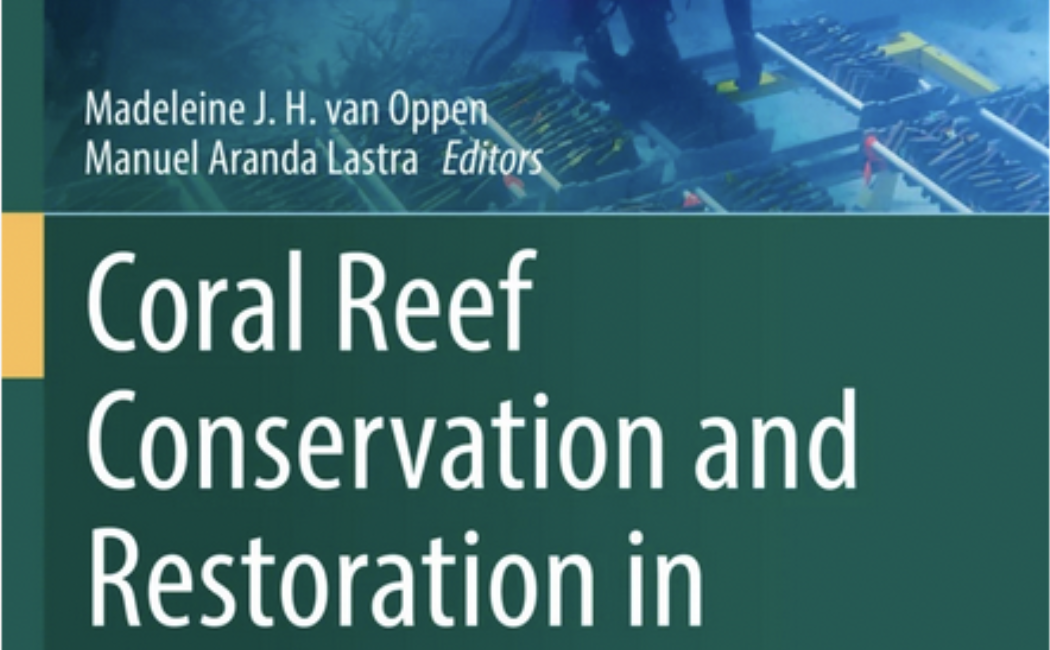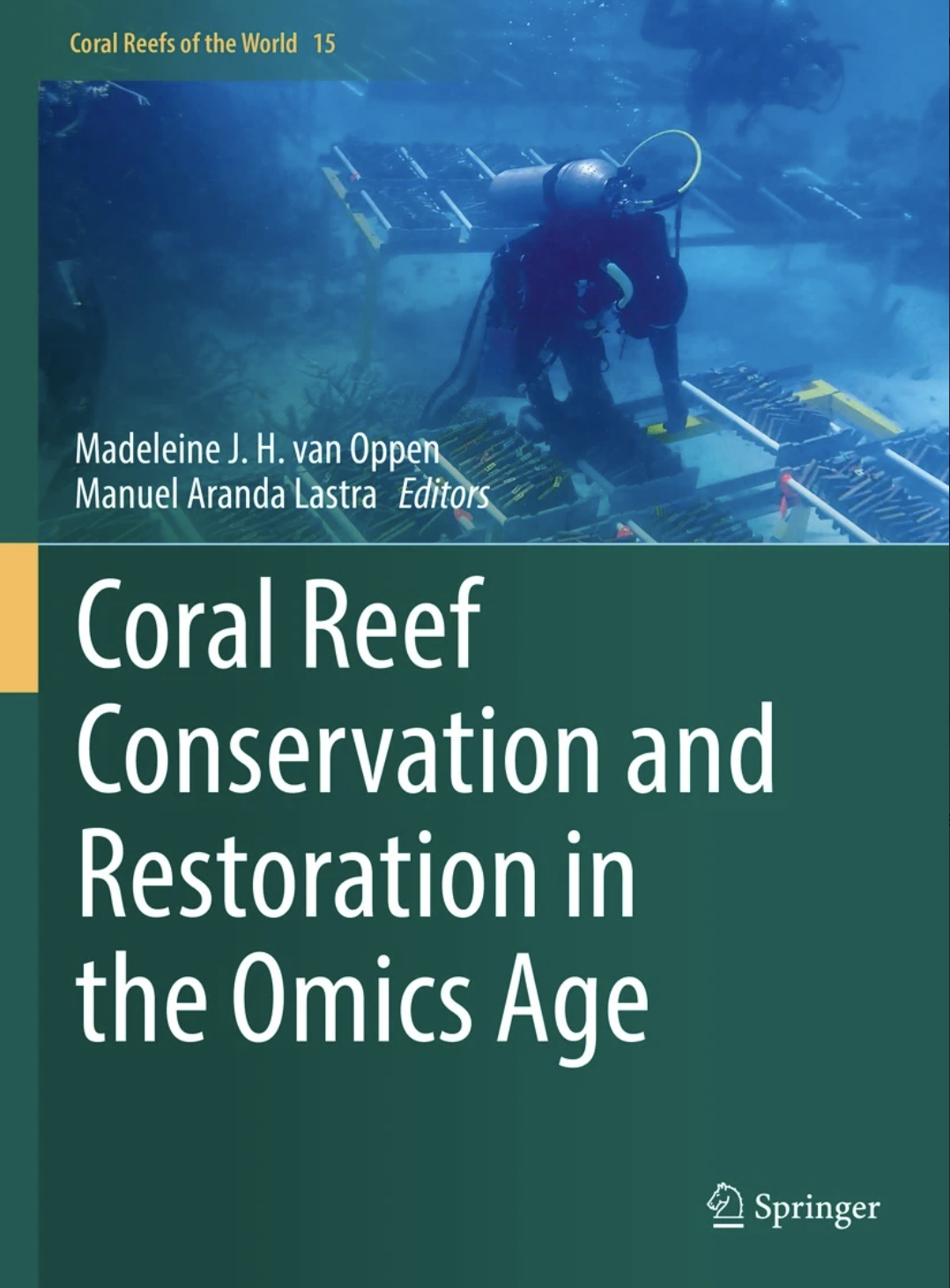
NEW BOOK: Coral Reef Conservation and Restoration in the Omics Age
01 December, 2022
About this book:
The rapid demise of coral reefs worldwide has spurred efforts to develop innovative conservation and restoration methods. Many of these rely on omics approaches to produce genetic, genomic, transcriptomic, epigenomic or metabolomic data to inform conservation and restoration interventions. This book provides the state of play of this field. It discusses topics ranging from how genomic and environmental DNA (eDNA) data can be used to inform marine protected area design and cryopreservation strategies, the use of knowledge on adaptive genetic and epigenetic variation to maximise environmental stress tolerance of coral stock, harnessing transcriptome data to develop early warning markers, the use of microbial symbiont omics data in guiding restoration strategies, to applications of metabolomics and genetic engineering. How best to translate omics data to resource managers is also discussed.
Read and download the book here.
About the authors:
Dr. Madeleine van Oppen is an Australian Research Council Laureate Fellow and Professor at the University of Melbourne and the Australian Institute of Marine Science. She completed her PhD on the molecular biogeography of seaweeds in 1995, followed by postdocs on the population and evolutionary genetics of Cichlid fishes and reef-building corals. Her current research is aimed at enhancing climate resilience of corals.
Dr. Manuel Aranda is
an Associate Professor at the King Abdullah University of Science and
Technology in Thuwal, Saudi Arabia. In 2006 he completed his PhD on the
evolution of gene regulatory networks in insects, followed by a postdoc
in the same field before moving to work on corals. In his current
research he uses genomics and epigenomics approaches to study the
molecular underpinnings of the coral-algal symbiosis and the potential
of human interventions to increase their resilience.
